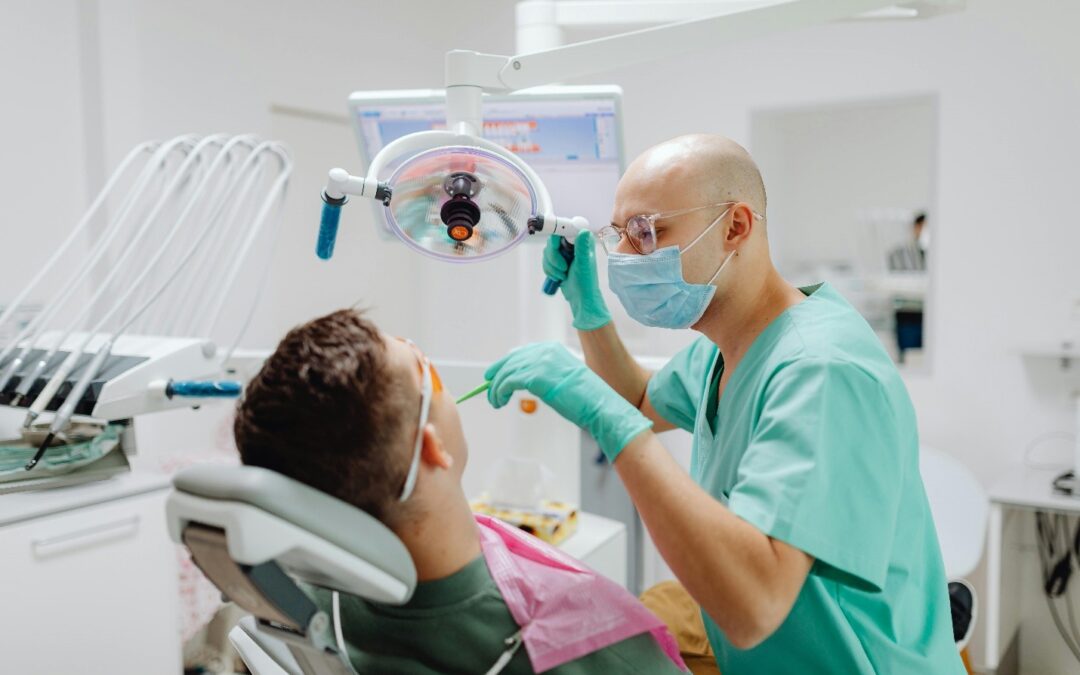A lot of dental problems, like cavities, gum disease, and oral cancer, do not show up or hurt until they are already pretty bad. This makes treatment and follow-up even more complicated. Some factors, like being sick, changing what you eat, starting a new medication can change your risk for dental disease over time, even if you are healthy right now. Why then take the risk?
How Often Should I Visit My Dentist?
Your dental visits depend on several factors. This includes your current oral health condition, personal oral hygiene habits, general health and medical conditions, and the risk of oral health problems that you and your dentist think you have.
Assessing your Chance of Getting Dental Disease
Any health, lifestyle, or genetic factors affecting your risk for dental disease should be considered when determining your risk level. Risk factors include eating a lot of sugar and refined carbohydrates, not getting enough fluoride in your water, smoking or using other tobacco products, drinking or using drugs heavily for fun, and having a medical condition like diabetes, Sjogren’s Syndrome, or head and neck cancer.
Regularly Scheduled Visits
The best time for regular dental examination must be clearly defined, but in the U.S., once or twice a year has been the general recommendation for a long time. Most people who do not have oral diseases can go to the dentist less often, while others may need to go more often.
When you go to the dentist will depend on how often your dental insurance covers services. Regardless of your dental insurance plan, you can get two yearly exams. Remember, you should still get your mouth cleaned by a professional and have an annual checkup to ensure everything is healthy and on track.
Here are Some More Factors to Consider
What else should you consider when deciding how often to see the dentist?
- Changes in Dental Health
Have your teeth been acting differently lately? Broken, chipped, or shifting teeth, swollen or bleeding gums, constant tooth pain, and sensitivity to hot or cold drinks are all things you should pay attention to. You should make an appointment with your dentist in any of these situations.1
- Dental Care and Fixing Problems
Some dental procedures, like fillings, crowns, or oral surgery, may require you to schedule follow-up visits with your dentist to ensure your teeth and gums heal correctly. These visits usually include a quick checkup with your dentist, and you can ask any questions about the new dental work. To keep this condition under control, you may need to go to the dentist more often if you have active periodontal (gum) disease. The frequency of these visits could range from every two to six months.
- Children’s Dental Visits
Once a child’s first baby tooth comes in or by their first birthday, they should usually have their first dental visit. For older kids, dental checkups should happen as often as the dentist says, usually every six months to a year.
- Adult Dental Visits
Different doctors recommend different numbers of dental checkups for adults. As a result, most studies define regular attendees as people who go to the dentist at least once a year. Visits to the dentist depend on your oral health needs and how often you get cavities, gum problems, or other problems. Differences exist in how quickly stains and dental plaque buildup on teeth, and some people may benefit from having their teeth cleaned more often if they are more likely to get stains or calculus buildup.
Furthermore, people with dental insurance usually go to the dentist more often than people without it. Additionally, companies with wellness programs frequently reward their workers for participating in certain health-promoting activities yearly. Corporations know that keeping employees healthy can save them money and the corporation.
People at High Risk
Due to a higher risk of oral health problems, the following groups may need to see the dentist more often:
- Tobacco users
- pregnant women
- Diabetes, Sjogren’s syndrome, head and neck cancers, HIV/AIDS, and other medical conditions
- People with gum disease, a weak immune system, cavities, or dry mouth.
- Older people
Regular visits to the dentist are essential no matter how you feel about your oral health. Getting an annual oral checkup at the dentist’s office is recommended, but some evidence suggests that people not at high risk for disease may wait 18 to 24 months. Contact your dentist to learn more about how they determine oral disease and what they determine for your specific schedule for dental examination and cleanings.

